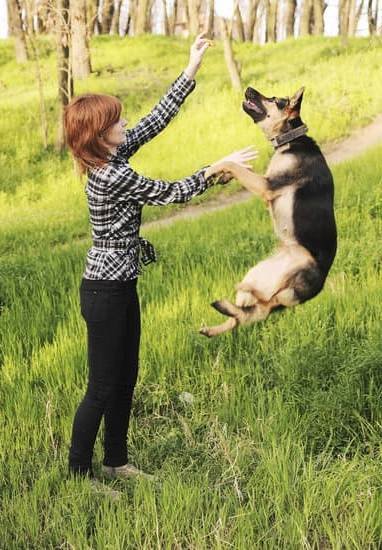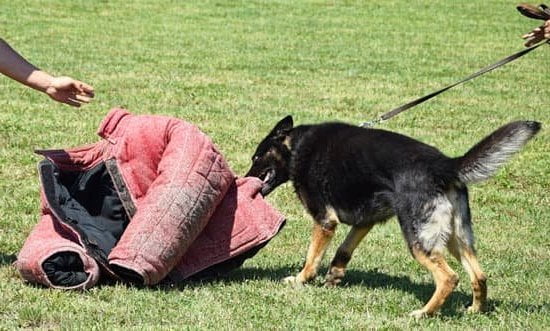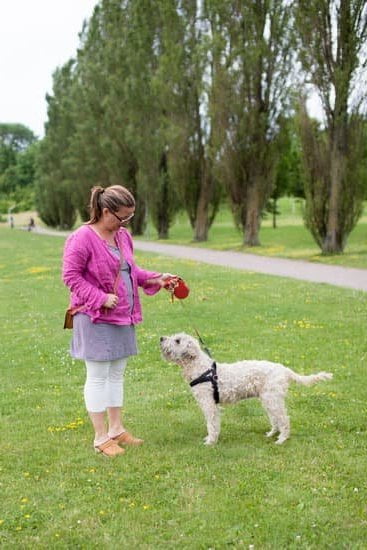It can be a little more difficult to train an older dog in a kennel, but it’s definitely not impossible. In fact, with a little patience and perseverance, you can have your furry friend happily kenneled in no time.
The first step is to begin by associating the kennel with positive things. Whenever you put your dog in the kennel, make sure to give her a treat or some other form of positive reinforcement. This will help her to view the kennel as a good thing.
Once your dog is comfortable going into the kennel, start by closing the door for short periods of time. Gradually increase the amount of time that the door is closed. If your dog begins to whine or bark, don’t give in and let her out. This will only reinforce the behavior. Instead, wait until she’s quiet and then let her out.
It’s also important to make sure that your dog has plenty of exercise. A tired dog is less likely to be restless in the kennel. Regular walks and playtime will help to wear her out.
If you follow these tips, your older dog will soon be happily kenneled and you can rest assured that she’s safe and secure.
How To Train An Older Dog Not To Be Aggressive
If you have an older dog that has become aggressive, there are a few things you can do to help train them out of it. The first step is to identify what is causing the aggression. There are many reasons a dog may become aggressive, such as fear, pain, or a desire to protect their territory. Once you have identified the cause, you can begin to work on a training program to address the issue.
If your dog is aggressive out of fear, you will need to work on building their confidence. One way to do this is to start by rewarding them for calm, submissive behavior. You can also begin to slowly expose them to the things that scare them. If your dog is aggressive out of pain, you will need to get them help from a veterinarian. Once the underlying cause has been addressed, you can begin to work on training your dog not to be aggressive.
The first step in training an older dog not to be aggressive is to create a positive association with people. You can do this by rewarding them every time they show calm, submissive behavior around people. You can also start to slowly introduce them to new people in a safe and controlled environment. If your dog is aggressive out of a desire to protect their territory, you will need to begin by teaching them that people are not a threat. You can do this by rewarding them for calm, submissive behavior around people, and by slowly exposing them to new people in a safe and controlled environment.
It will likely take time and patience to train an older dog not to be aggressive, but it is possible. With patience and positive reinforcement, you can help your dog live a happier, more peaceful life.
Can You Obedience Train An Older Dog
?
Obedience training is an important aspect of any dog’s life. It helps to create a strong bond between dog and owner, and teaches the dog how to behave in a way that makes both of them happy. But what about older dogs? Can obedience training still be effective, or is it too late?
The truth is, obedience training can be effective for older dogs, but it takes a bit more effort. Older dogs may not be as motivated to learn as puppies, so it’s important to be patient and keep sessions short but consistent. Rewards are also key – older dogs love treats, so make sure to give them plenty!
Obedience training can help older dogs feel more comfortable and confident in their surroundings. It can also help to prevent problem behaviors, such as jumping on people or begging for food. In short, obedience training is a great way to keep your older dog happy and healthy – and it’s never too late to start!
Can You Train An Older Dog
?
Many people believe that you cannot train an older dog. This is simply not true. You can train an older dog, but you need to be patient and use positive reinforcement methods. Older dogs may not be as quick to learn as young dogs, but with patience and consistency, you can teach them new tricks and commands.
One of the best things you can do for an older dog is to keep them mentally stimulated. This can be done by teaching them new tricks, playing games with them, and providing them with plenty of toys to keep them occupied. Older dogs can still learn new things, and keeping them mentally stimulated will help keep them healthy and happy.
If you have an older dog that needs some training, start with basic commands like sit, stay, come, and down. Once your dog has mastered these commands, you can move on to more advanced commands. Always use positive reinforcement when training your dog, and be patient. Older dogs may not learn as quickly as young dogs, but with persistence, they will eventually learn what you are trying to teach them.
Can You Still Potty Train An Older Dog
?
Potty training an older dog can be a challenge, but it is definitely not impossible. In fact, there are a few things you can do to make the process a bit easier.
The first step is to make sure that your dog is completely housebroken. If he is not, you will need to start by housebreaking him. Once he is housebroken, you can then start the potty training process.
One of the best ways to potty train an older dog is to use a crate. A crate can help to keep your dog in one area, and it will also help to teach him where to potty. Make sure that you put your dog in the crate for short periods of time at first, and gradually increase the amount of time he spends in the crate.
If you do not want to use a crate, you can also use a designated potty area. This can be an outdoor area or an indoor area that is specifically designated for potty breaks. Make sure that you take your dog to this area every time he needs to go potty, and praise him when he goes in the correct spot.
It is also important to be consistent with your potty training. If you allow your dog to have free run of the house one day, but then expect him to hold it for the next day, he is likely to get confused. Make sure that you are consistent with your rules, and your dog will be much more likely to potty train successfully.
If you are consistent and use a crate or designated potty area, your older dog should be able to potty train successfully in a relatively short amount of time.

Welcome to the blog! I am a professional dog trainer and have been working with dogs for many years. In this blog, I will be discussing various topics related to dog training, including tips, tricks, and advice. I hope you find this information helpful and informative. Thanks for reading!





